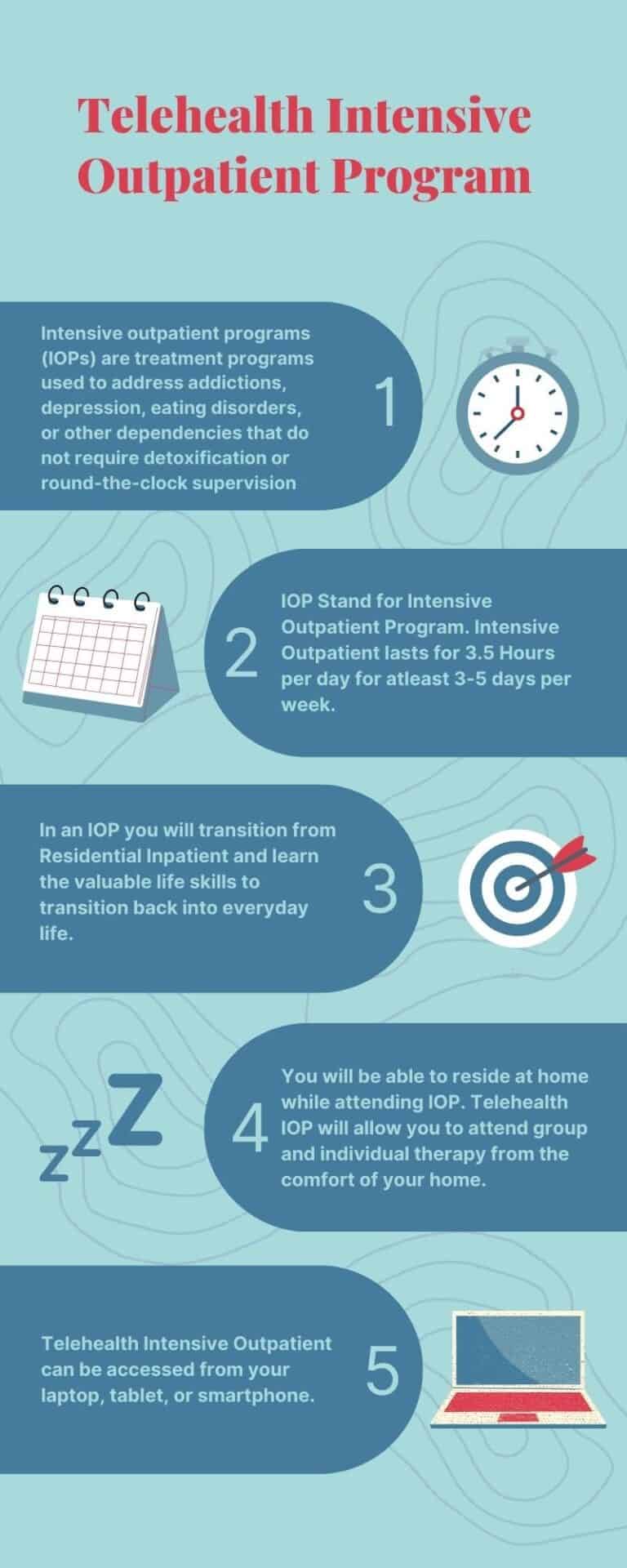Browsing the Intricacies of Dual Diagnosis Therapy Within an Intensive Outpatient Program Setting
In the world of mental health and wellness and addiction therapy, the crossway of dual medical diagnosis provides a nuanced challenge that requires a detailed and tailored strategy. Within the boundaries of an Intensive Outpatient Program (IOP) setup, the intricacies of attending to co-occurring mental health and wellness disorders and compound use problems need a fragile balance of competence and sources to browse. The combination of evidence-based practices, collective efforts among multidisciplinary groups, and a keen understanding of the one-of-a-kind requirements of each person are crucial elements in properly handling twin diagnosis within an IOP structure. By exploring the complexities of twin diagnosis therapy within this extensive outpatient context, a clearer course arises towards alternative and lasting recovery for those coming to grips with these linked challenges.
Dual Diagnosis Introduction
What is the value of recognizing double diagnosis in mental health and wellness treatment? It is essential to recognize and address this comorbidity as it can significantly influence the performance of psychological health and wellness treatment.
Understanding twin diagnosis is important as it calls for a detailed and integrated technique to treatment. By acknowledging the interplay between compound use and mental wellness, doctor can tailor treatments to meet the one-of-a-kind requirements of each person. This alternative strategy not just addresses symptoms however additionally targets underlying variables that contribute to the twin diagnosis.
Moreover, untreated twin diagnosis can cause a cycle of regression and intensifying psychological health signs. By identifying the complexity of double medical diagnosis and offering specific treatment, healthcare experts can sustain people in achieving long-lasting recuperation and improved mental wellness.
Tailored Therapy Strategies
Recognizing the elaborate interaction in between material use conditions and psychological wellness problems, the development of tailored treatment plans is vital in resolving the intricacies of dual diagnosis in mental health and wellness treatment. Customized therapy strategies are individualized strategies that take into consideration the distinct requirements, difficulties, and objectives of people encountering dual diagnosis. These plans are developed collaboratively by a multidisciplinary team of experts, including psychiatrists, psychologists, social workers, and addiction specialists, to make certain extensive and integrated care.
Tailored treatment strategies typically involve a mix of therapies, medications, and behavioral treatments that target both the material usage condition and the mental health condition simultaneously. These plans might consist of cognitive-behavioral therapy, dialectical behavior modification, medication-assisted therapy, specific counseling, group therapy, and household therapy, among various other evidence-based treatments. By tailoring therapy techniques to individual circumstances, customized strategies can deal with the origin of twin diagnosis, promote lasting healing, and enhance overall lifestyle for people battling with co-occurring disorders.
Integrated Treatment Method

In addition, the social aspect of integrated treatment involves dealing with ecological factors that might add to the development or perpetuation important usage and psychological health problems. This can include household characteristics, real estate instability, or lack of social support. By integrating social treatments like family therapy, employment assistance, and community resources, the treatment ends up being extra holistic and tailored to the individual's specific needs. Generally, an incorporated treatment approach in twin medical diagnosis treatment within an extensive outpatient program setup intends to give comprehensive, efficient, and customized treatment to people dealing with co-occurring conditions.
Challenges in IOP Establishing
In the context of twin diagnosis treatment within an extensive outpatient program, browsing the complexities of co-occurring substance usage conditions and mental health problems provides considerable difficulties. One of the key obstacles in the IOP setting is the control of treatment between psychological health and wellness experts and drug abuse experts to guarantee a comprehensive therapy method. This requires reliable communication, cooperation, and a deep understanding of exactly how these conditions straight from the source connect and influence each various other.
In addition, the changing nature important usage disorders and mental health problems adds one more layer of complexity - Intensive Outpatient Program (IOP). Customers in an IOP might experience unexpected changes in their signs or material food cravings, calling for timely treatment and modification of therapy techniques. Stabilizing the intensity of therapy and assistance while allowing customers the adaptability to manage their day-to-day responsibilities can be a fragile stability to preserve
In addition, dealing with preconception and resistance to therapy within the IOP setting can hinder development. Some people might be hesitant to divulge their double medical diagnosis or may feel ashamed, preventing their engagement in the read restorative procedure. Overcoming these barriers requires an encouraging and non-judgmental environment that fosters depend on and visibility.

Collaborative Professional Efforts

Collaborative efforts likewise prolong to routine interaction and details sharing amongst group participants to ensure a cohesive treatment approach. Ultimately, an unified front of experts working together improves the efficiency of double diagnosis treatment within an intensive outpatient program.
Final Thought
In final thought, efficient double diagnosis treatment within an intensive outpatient program setting requires customized therapy strategies and an incorporated treatment strategy. Difficulties may occur in this setting, but collaborative initiatives amongst experts can assist navigate these complexities. By attending to the special requirements of individuals with co-occurring psychological wellness and material utilize disorders, IOP programs can provide comprehensive and all natural like sustain recovery and overall health.